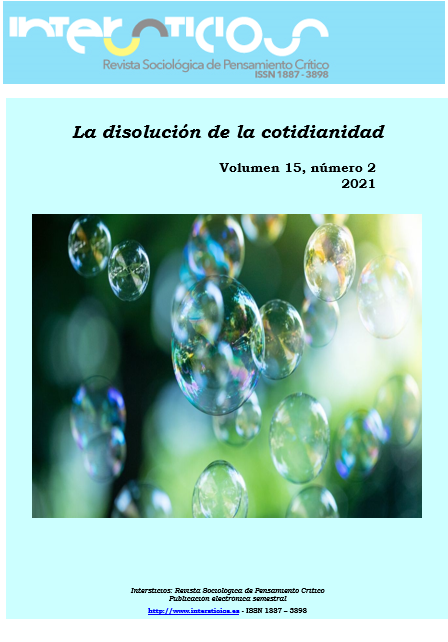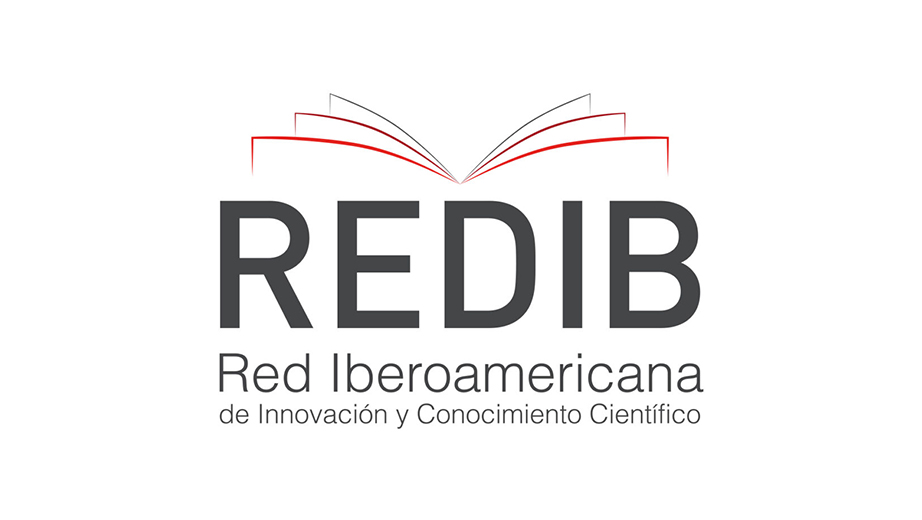Comparative Autoethnography of Labor
Keywords:
labor, autoethnography, body, business management, exploitationAbstract
In the following text we will explore through the human body and emotion the acquisition of different adaptive dispositions in the workspace, using the qualitative investigation tool called Autoethnography. More so, we will compare such adaptive dispositions in two very different fields of work: the workspace of a shop assistant in Inditex S.A on the one hand, and the workspace of an elementary basketball club coach on the other. For such a task, we will turn to Bourdieu’s Theory of Practical Action, in particular to the development of knowledge through the human body, and his Theory of Constitutive Duality. Likewise, we will attend to the different modes of production and business management of each workspace and their contractual conditions, which can affect their practice, and so their adaptive dispositions at their labor field, and Habitus. Also, we will link the significance of work, as an objective truth (work as a mean of subsistence, that is, exploitation) or a twofold truth (laundering exploitation under the idea of work as a vocation), and in turn related to business and production modes and the services provided by their workers, as well as their adjustment to a specific social field, which is situated learning specific and physical training.References
Esteban, M.L. (2004): “Antropología encarnada. Antropología desde una misma”, Papeles del CEIC, 12, pp. 1-21.
Bourdieu, P. «La economía de los bienes simbólicos», en Razones Prácticas. Sobre la teoría de la acción, Barcelona, Anagrama; pp. 159-198.
Bourdieu, P. (1999): “La doble verdad del trabajo”, en Meditaciones pascalianas, Barcelona, Anagrama; pp. 266-271.
Bourdieu, P. (1999): “Conocimiento por cuerpos”, en Meditaciones pascalianas, Barcelona, Anagrama; pp. 174-217.
Ferreira, M.A.V (2009): “Lo social como proceso: la transducción ontogenética de las prácticas sociales”, Nómadas. Revista Crítica de Ciencias Sociales y Jurídicas, 22, pp. 129-147.
Ferreira, M.A.V (2021, 9 de abril): “Clase del 9 de abril de 2021” [Clase para la asignatura Sociología Industrial y de las Relaciones Laborales; temas V y VI: “Industria y trabajo”], Madrid, España.
Foucault, M. (2008): “Clase del 14 de marzo de 1979”, Nacimiento de la biopolítica.
Hernando, J. (2019): “Inditex y la cuarta revolución industrial”, El País Economía, 24 de julio. Disponible en: https://cincodias.elpais.com/cincodias/2019/07/23/companias/1563890404_689306.html [Consulta: 10/5/2021]
Illouz, E. (2007): “Sufrimiento, campos emocionales y capital emocional” en Intimidades congeladas: las emociones en el capitalismo”, Madrid, Cultura Libre, pp. 93-159.
LeanSherpa: “El secreto del éxito de Zara y su modelo de negocio”. Disponible en: https://leansherpa.es/zara-y-su-modelo-de-negocio/ [Consulta: 8/5/2021]
Martínez-Senra, A., A. Sartal y X. Vázquez (2012): ““Tintorerías de posguerra” e innovación organizativa en Inditex: una perspectiva contractual de la gestión lean de la cadena de suministro”, Universia Business Review, 34, pp. 36-51.
Sayer, A. (1999): “Nuevos desarrollos en la fabricación: el sistema “justo a tiempo”” en L. Finkel: La organización social del trabajo, Madrid, Pirámide, pp. 171-194.
Sennet, R (2000): “La corrosión del carácter”, Barcelona, Anagrama.
Bourdieu, P. «La economía de los bienes simbólicos», en Razones Prácticas. Sobre la teoría de la acción, Barcelona, Anagrama; pp. 159-198.
Bourdieu, P. (1999): “La doble verdad del trabajo”, en Meditaciones pascalianas, Barcelona, Anagrama; pp. 266-271.
Bourdieu, P. (1999): “Conocimiento por cuerpos”, en Meditaciones pascalianas, Barcelona, Anagrama; pp. 174-217.
Ferreira, M.A.V (2009): “Lo social como proceso: la transducción ontogenética de las prácticas sociales”, Nómadas. Revista Crítica de Ciencias Sociales y Jurídicas, 22, pp. 129-147.
Ferreira, M.A.V (2021, 9 de abril): “Clase del 9 de abril de 2021” [Clase para la asignatura Sociología Industrial y de las Relaciones Laborales; temas V y VI: “Industria y trabajo”], Madrid, España.
Foucault, M. (2008): “Clase del 14 de marzo de 1979”, Nacimiento de la biopolítica.
Hernando, J. (2019): “Inditex y la cuarta revolución industrial”, El País Economía, 24 de julio. Disponible en: https://cincodias.elpais.com/cincodias/2019/07/23/companias/1563890404_689306.html [Consulta: 10/5/2021]
Illouz, E. (2007): “Sufrimiento, campos emocionales y capital emocional” en Intimidades congeladas: las emociones en el capitalismo”, Madrid, Cultura Libre, pp. 93-159.
LeanSherpa: “El secreto del éxito de Zara y su modelo de negocio”. Disponible en: https://leansherpa.es/zara-y-su-modelo-de-negocio/ [Consulta: 8/5/2021]
Martínez-Senra, A., A. Sartal y X. Vázquez (2012): ““Tintorerías de posguerra” e innovación organizativa en Inditex: una perspectiva contractual de la gestión lean de la cadena de suministro”, Universia Business Review, 34, pp. 36-51.
Sayer, A. (1999): “Nuevos desarrollos en la fabricación: el sistema “justo a tiempo”” en L. Finkel: La organización social del trabajo, Madrid, Pirámide, pp. 171-194.
Sennet, R (2000): “La corrosión del carácter”, Barcelona, Anagrama.
Downloads
Published
2021-09-03
Issue
Section
JÓVENES INVESTIGADORES









